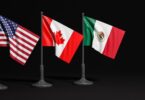The following report is by Coin Telegraph:
Zimbabwe’s central bank has set a price for its gold-backed digital tokens. The country is planning to sell its gold-backed digital currency to investors starting May 8. The tokens will be sold at a minimum price of $10 for individuals and $5,000 for corporations and other entities.
According to a statement released by the Reserve Bank of Zimbabwe on May 4, the gold-backed digital currency tokens will be sold in U.S. dollars and local currency. However, the local currency price will have a 20% margin above the willing-buyer willing-seller interbank mid-rate. Interested investors can participate in the offer from May 8, which will close two days later.
The willing-buyer willing-seller interbank mid-rate is the exchange rate at which banks are willing to buy and sell currencies to each other. It is considered the “midpoint” between the buying and selling rates determined by prevailing market conditions such as supply and demand. This rate is used as a benchmark for many financial transactions, and is often used as a reference rate for exchange rates quoted by banks and financial institutions.
The Reserve Bank of Zimbabwe announced its plans to introduce a gold-backed digital currency to serve as legal tender in the country on April 28.
The introduction of digital tokens is the latest move by the southern African nation to support its own local currency, which has weakened 37% against the U.S. dollar on the official market this year, according to Bloomberg.
The Monetary Policy Committee approved the plan in March, eight months after Zimbabwe introduced gold coins as a store of value to help support the local unit.
According to a Bloomberg report, Zimbabwe’s currency — the Zimbabwean dollar — is quoted at 1,001 against the U.S. dollar, but is commonly exchanged at 1,750 on the streets of Harare, the capital city of the country.
Zimbabwe has been battling currency instability and high inflation rates for over ten years. After a period of hyperinflation, the country adopted the U.S. dollar in 2009. In an attempt to revive the struggling economy, the Zimbabwean dollar was reintroduced in 2019. However, in 2022, the government reverted back to using the U.S. dollar to control rising prices.
Nigeria introduced its own digital currency — the eNaira — in 2021, becoming the first African nation to do so.
AUTHOR COMMENTARY
Almost two weeks ago I reported how the state of Texas has floated out a bill that would allow them to create a gold-backed CBDC of their own, one that is convertible into physical tender and cash.
SEE: Texas Introduces Legislation To Create Their Own Gold-Backed CBDC
But just as I said with that, the idea of a gold-backed CBDC simply does not compute with me, and I don’t see any such CBDC lasting long. The whole point of the CBDC is to get ensnared with the digital trap so that central banks can monitor and mitigate all transactions in real time. The allowance of people to then convert the digital tokens into precious metals – which would then defeat the purpose of a CBDC in the first place – just does not register with me. And even if a CBDC is backed by gold, why would a central bank allow customers to buy gold, and what would that gold profit them if the final transaction must be digital?
I freely admit that I could be wrong in my assessment, but that’s how I see it because I know that CBDC’s are evil, representing a total loss of freedom and liberty once fully implemented.
The rich ruleth over the poor, and the borrower is servant to the lender.
Proverbs 22:7
[7] Who goeth a warfare any time at his own charges? who planteth a vineyard, and eateth not of the fruit thereof? or who feedeth a flock, and eateth not of the milk of the flock? [8] Say I these things as a man? or saith not the law the same also? [9] For it is written in the law of Moses, Thou shalt not muzzle the mouth of the ox that treadeth out the corn. Doth God take care for oxen? [10] Or saith he it altogether for our sakes? For our sakes, no doubt, this is written: that he that ploweth should plow in hope; and that he that thresheth in hope should be partaker of his hope. (1 Corinthians 9:7-10).
The WinePress needs your support! If God has laid it on your heart to want to contribute, please prayerfully consider donating to this ministry. If you cannot gift a monetary donation, then please donate your fervent prayers to keep this ministry going! Thank you and may God bless you.








I don’t understand how a gold-backed cbdc makes any sense either, but I guess the corporatist communists killed enough Zimbabweans with their takeover, massive inflation bomb, & starvation of the surviving ‘rebels’ who didn’t know how to tend to the farms of the middle class people they killed &/or displaced, that antichrist Rome & her despot crony elites/kings’. ‘gods’ & ‘goddesses can pretty much do whatever they want there …..for now. Only under Christ will such beautiful & wonderful places be free of persecution & sin, & properly governed. I wonder what minerals &/or metal ores needed for the ‘green’ battery/’sustainability’ power & property shift Zimbabwe is rich in that she got the ‘early’ treatment & privilege of being a ‘test’ run?
I think that the use of CBDC would be implemented to the point where buying precious metals with it would be a privilege that is heavily regulated. I think that gold would be confiscated again and that it would be rationed for those who comply with the CBDC.